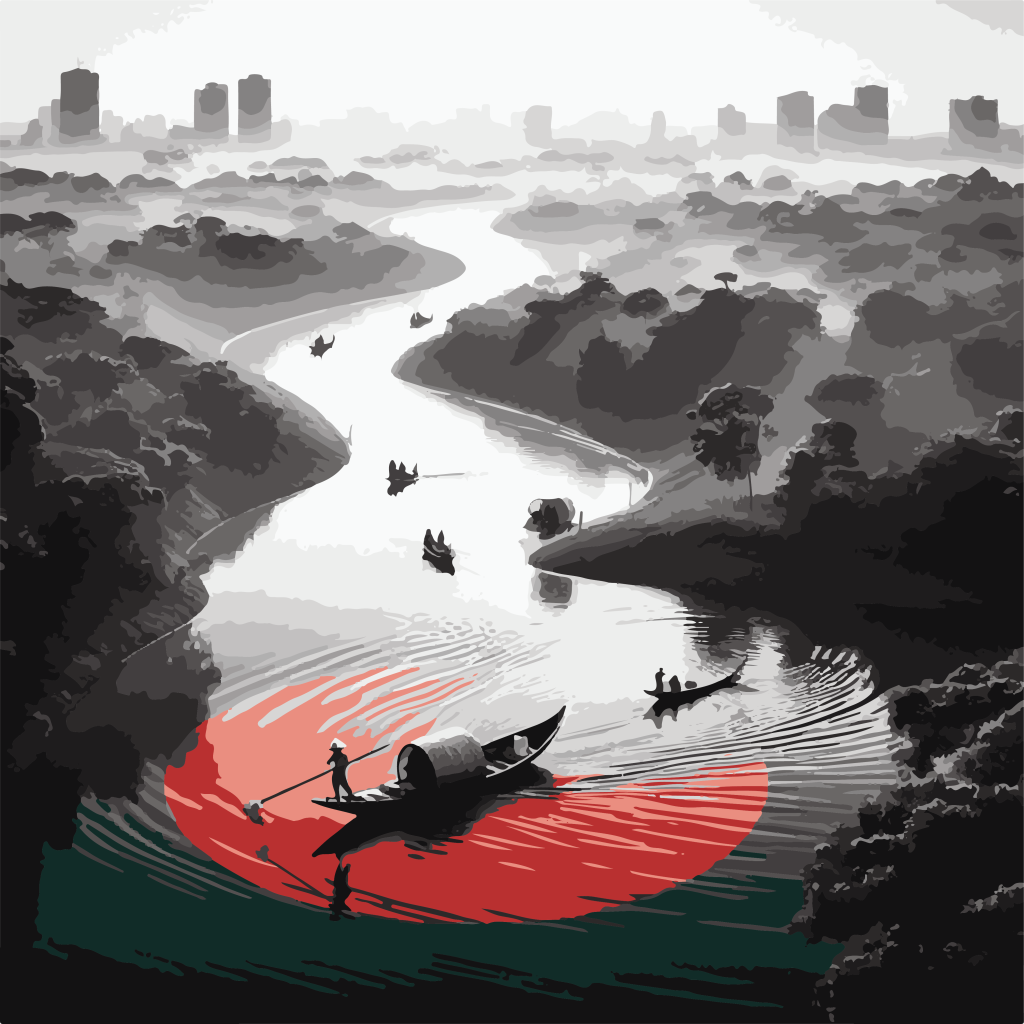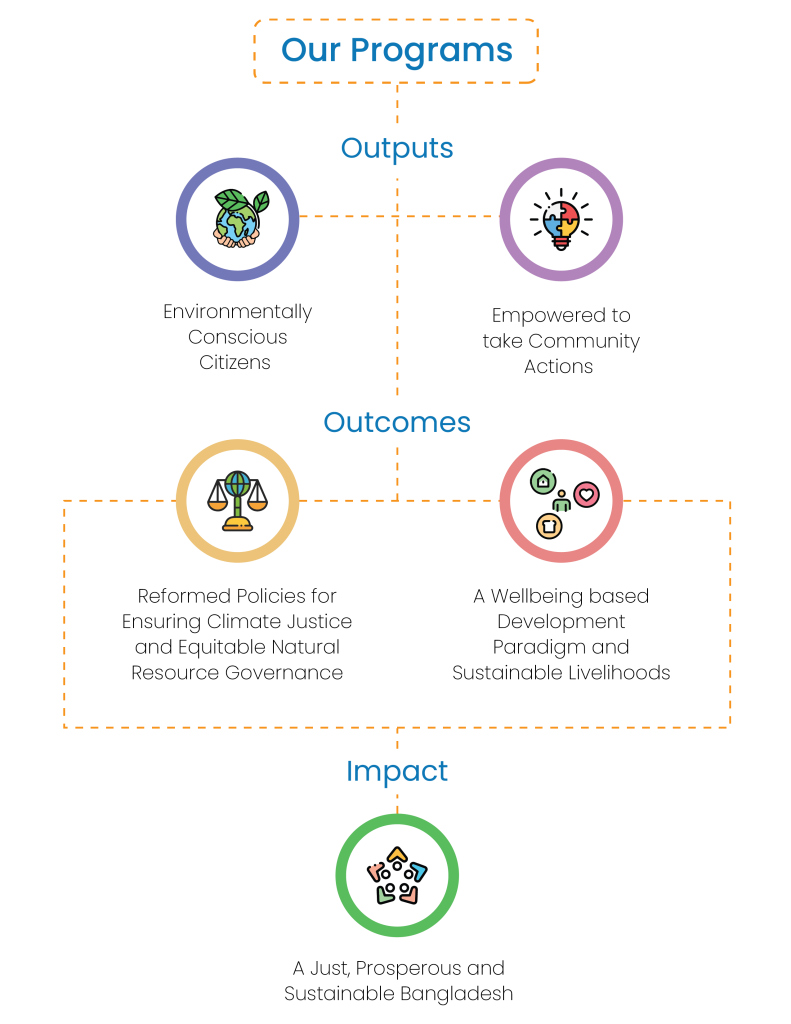The planet Earth that we call our home is sick. We are facing a triple crisis: ecological crisis exacerbated by dwindling biodiversity, environmental crisis due to unabated pollution and climate crisis because of our unfettered and unsustainable economic growth model. These crises are disrupting the ecological balance and destroying the life-supporting nature, thus posing existential threats for the human civilisation.
Bangladesh’s rapid economic development over the last few decades has caused/ushered a massive level of pollution, loss of biodiversity, unsustainable agricultural practices, and overall, destruction of life-supporting ecosystems. It has an enormous cost on human health and wellbeing. On top of that, the climate crisis threatens to undo all the socio-economic progress made so far. Continuation of this path will cause irreversible damage to the people and the environment and perpetuate injustice to the poor and marginalised.
We need to reimagine and reset our development pathway to a more ecologically balanced, resilient and socially inclusive to heal the ailing health of the planet. This would require bold and courageous thinking and action that can come from the youth who are the leaders of today and tomorrow.


The Strategic Intervention of BYEI takes four forms:

Environmental Consciousness emcompasses activities which bring awareness and understanding of the Earth to the forefront of our minds. These activities involve inducing a shift in our perception of the world, so that we can be more sensitive to the environmental and social issues that are around us, and be mindful of our actions so as to reduce our negative footprint.

These are a series of activities which aim to enhance the expertise of people on various disciplines connected to our planet. The trainings enable young people to identify and analyze environmental and social issues, while also teaching them to make a stand and mobilize support to take action.

This intervention takes a dual approach. Firstly, it includes research for collection of evidence of environmental degradation, and the social injustice and inequity that is caused by this. The research allows for a more comprehensive understanding of the issues, intersectionality, and other aspects which may not be apparent at first glance. Secondly, the collected evidence is used for advocacy with relevant stakeholders, to ensure accountability and create a just, inclusive and equitable society.

Youth, a big portion of our global population now and for the decades to come, face a key challenge in our world today. Employment is scarce, and many activities which generate income are often detrimental to the environment. This intervention area works to promote and support livelihood options which meet the economic needs of young people, while also being beneficial to the planet and society.